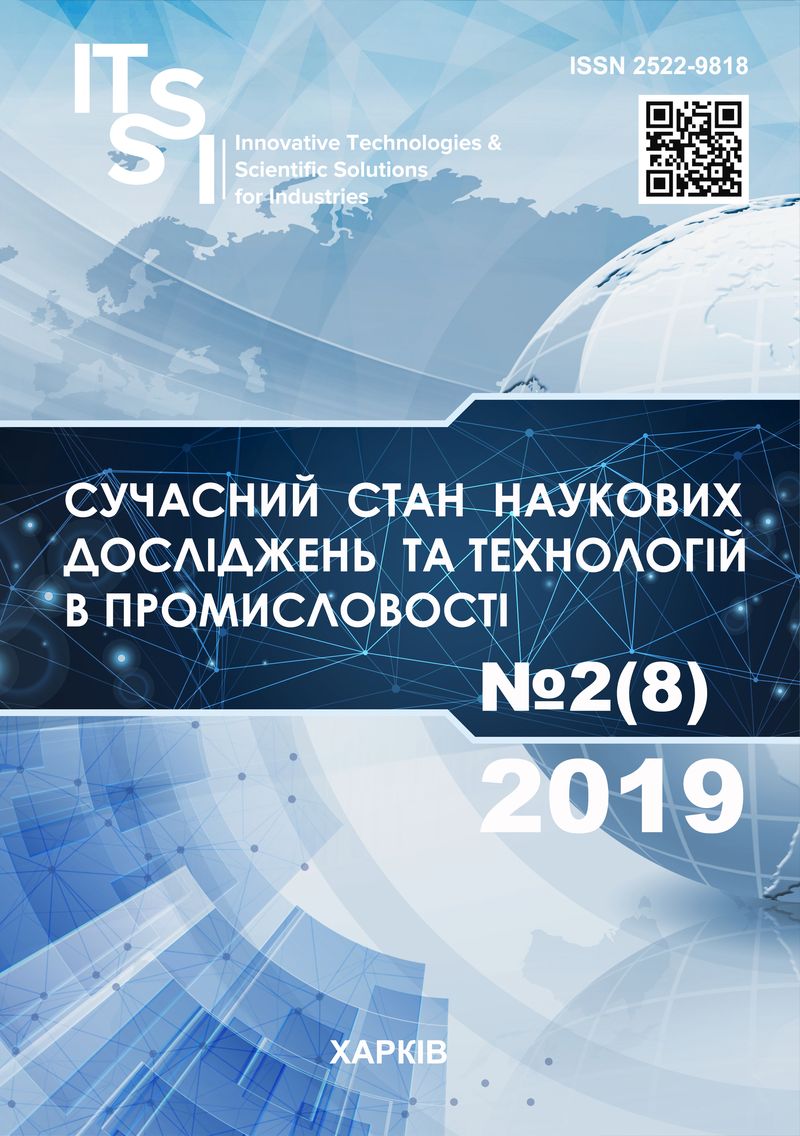DECISION-MAKING INFORMATION TECHNOLOGY FOR FLEXIBLE INTEGRATED MANUFACTURING
DOI:
https://doi.org/10.30837/2522-9818.2019.8.105Keywords:
information technology, decision-making, mobile robot, flexible integrated systemAbstract
The subject of the study in the article is flexible integrated robotic systems. The aim of the work is to integrate models and decision-making methods in order to create information technology for flexible production. The following tasks are solved in the article: analysis of current trends in the development of production systems, consideration of intellectual decision-making systems as one of the key elements of automated control systems, consideration of the creation of information technology, based on a set of methods and decision models, including adaptive decision making for non-deterministic tasks. Research methods are the theory of sets and the theory of predicates. The following results were obtained: the main problems of the development of flexible integrated systems of modern production were analyzed and formulated. As a new element in the technological systems, it is proposed to introduce the intelligent production agents implemented as mobile robotic platforms capable of performing transport and assembling functions, executing the monitoring tasks, and establishing the basic requirements for them. From the formal point of view, the decision-making process in flexible robotic systems is considered, based on the interaction of the properties of the robotic system, the properties of the working space and the set of possible solutions. The fulfillment of each individual technological task involves the development and implementation of a plan of work of robotic equipment, the set of variants of which is a strategy of functioning of the intellectual robotic system, described in the form of predicate logic. To solve the required technological tasks, the use of the automatic procedures of the generator of solutions, which operates based on the frame-like structures is proposed. The decision-making process consistently supports the consistent decision-making information technology in a robotized production system based on the models of different types. Conclusions: application of the concept of the intellectual agent in the production environment requires the integrated application of models and methods of decision making, which can be a separate information technology of robotic production.
References
Veselovska, N., Strutinkii, V. (2009), "The perspectives of computer-integrated manufacturing systems", Naukovi Notatki, Vol. 25, P. 11–15.
Kerak, P. (2012), "Novel trends in the intelligent manufacturing systems", Proc. Of 8th International Baltic Conference "Industrial Engineering", 19-21 Apr., 2012, Tallinn.
Greiff, S., Scheiter, K., Schrer, R., Borgonovi, F., Britt, A., Graesser, A., Kitajima, M., Rouet, J. F. (2017), Adaptive problem solving. Moving towards a new assessment domain in the second cycle of PIAAC, OECD Education Working Papers, No. 156, 57 p.
Gratch, J., DeJong, J. (1996), "A statistical approach to adaptive problem solving", Artificial Intelligence, Vol. 88, No. 1-2, P. 101–142. DOI: https://doi.org/10.1016/S0004-3702(96)00011-2" target="_blank">https://doi.org/10.1016/S0004-3702(96)00011-2
Yegupov, N. (2002), Methods of robust, neuro-fuzzy and adaptive control, MGTU, 744 p.
Eiter, T., Wolfgang, F., Leone, N., Pfeifer, G. (2004), "A Logic Programming Approach to Knowledge-State Planning: Semantics and Complexity", ACM Transactions on Computational Logic, Vol. 5, P. 206–263.
O’Hara, Keith J. (2004), "Distributed Path Planning for Robots in Dynamic Environments Using a Pervasive Embedded Network", AAMAS'04, P. 1536–1537.
Yefimov, E. I. (1982), Solvers for intelligent tasks, Nauka, 320 p.
Thrun, S. (2005), Probabilistic Robotics, The MIT Press, 667 p.
Tsymbal, O. (2009), "Decision-planning for robot control system", Vestnik of Sevastopol GTU, Vol. 95, P. 124–128.
Ladaniuk, А., T. Prokopenko, T., Reshetiuk, V. (2014), "The model of strategic management of organizational and technical systems, taking into account risk-based cognitive approach", Annals of Warsaw University of life science, No. 63, P. 97–104.
Tsymbal, A., Bronnikov, A. (2012). "Decision-making in Robotics and adaptive tasks", Proceedings of IEEE East-West Design & Test Symposium (EWDTS’2012), P. 417–420.
Tsymbal, A. (2014), "Methodical aspects of planning strategies for intelligent control system of robot", Vestnik of Belgorod GTU, Vol. 2, P 139–142.
Simoens, P., Dragone, M., Saffiotti, A. (2018), "The Internet of Robotic things: A review of concept, added value and applications", International Journal of Advanced Robotic Systems, No. 1-2, P. 1–11.
Nevliudov, I., Tsymbal, O. and Bronnikov, A. (2018), "Intelligent means in the system of managing a manufacturing agent", Innovative Technologies and Scientific Solutions for Industries, No. 1 (3), P. 33–47. DOI: https://doi.org/10.30837/2522-9818.2018.3.033.
Downloads
Published
How to Cite
Issue
Section
License
Copyright (c) 2019 Oleksandr Tsymbal, Artem Bronnikov

This work is licensed under a Creative Commons Attribution-NonCommercial-ShareAlike 4.0 International License.
Our journal abides by the Creative Commons copyright rights and permissions for open access journals.
Authors who publish with this journal agree to the following terms:
Authors hold the copyright without restrictions and grant the journal right of first publication with the work simultaneously licensed under a Creative Commons Attribution-NonCommercial-ShareAlike 4.0 International License (CC BY-NC-SA 4.0) that allows others to share the work with an acknowledgment of the work's authorship and initial publication in this journal.
Authors are able to enter into separate, additional contractual arrangements for the non-commercial and non-exclusive distribution of the journal's published version of the work (e.g., post it to an institutional repository or publish it in a book), with an acknowledgment of its initial publication in this journal.
Authors are permitted and encouraged to post their published work online (e.g., in institutional repositories or on their website) as it can lead to productive exchanges, as well as earlier and greater citation of published work.














